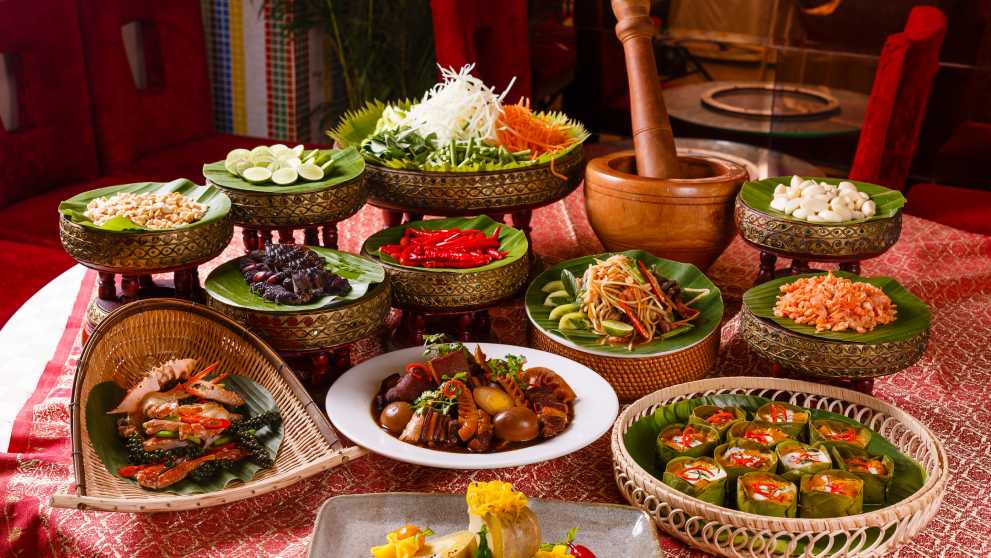Cambodian cuisine is poised for global recognition for its rich flavours and traditional recipes. From the fragrant Amok to the zest of Khmer curries, Cambodian dishes offer a unique taste that can captivate palates worldwide. As the world increasingly wants to diversify and experiment with new global cuisines, Cambodian food businesses have the opportunity to showcase the unique flavours and dishes Cambodia has to offer.
With the help of today’s e-commerce and reliable logistics solutions, like DHL Express, it is possible for Cambodian food businesses to not only expand their market but also share their food culture with the world.
The e-commerce gateway for Cambodian flavours
Digital marketplaces have changed the way we buy and sell products, and today, Cambodian food businesses are strategically using e-commerce platforms to catapult local flavours onto the global stage. By embracing online selling, these enterprises are not only expanding their reach but also ensuring that food lovers around the world can experience authentic Cambodian cuisine without leaving their homes.
One of the most significant advantages of e-commerce for Cambodian business owners is the ability to bridge the geographical and logistical gaps that previously limited market expansion. Global platforms like Amazon and Alibaba and regional sites such as Lazada and Shopee are becoming pivotal for Cambodian vendors aiming to connect with international consumers. Also, social selling platforms, like TikTok and Facebook, have also been pivotal in broadening the market reach. Through these channels, businesses can bypass traditional retail constraints, accessing a vast network of potential customers with minimal overhead.
Popular Cambodian food products emerging in the market
Several Cambodian food products have successfully captured the hearts and palates of international customers. For example, dried Kampot pepper, a gourmet favourite, is now a staple in kitchens from the US to Europe, celebrated for its unique flavour that enhances any dish. Another success story is the rise in popularity of Cambodian palm sugar, which is favoured by international chefs and home cooks for its rich, caramel-like sweetness, ideal for both sweet and savoury creations.
Additionally, ready-to-cook meal kits for dishes like Fish Amok and Beef Lok Lak have also become famous abroad. These kits include pre-measured, authentic ingredients and easy-to-follow instructions, allowing food enthusiasts worldwide to recreate traditional Cambodian meals in their kitchens. This not only promotes Cambodian cuisine but also supports local agriculture and production, showcasing the country's commitment to quality and sustainability.






























